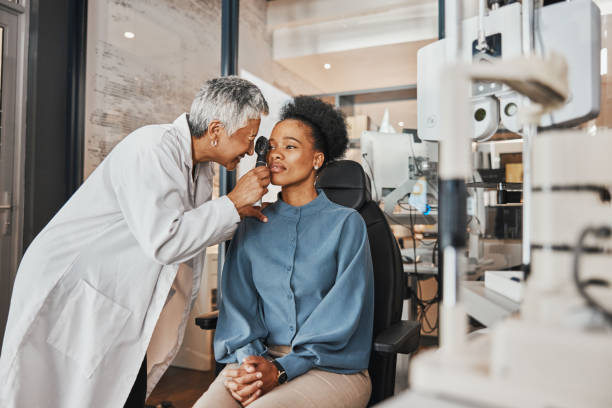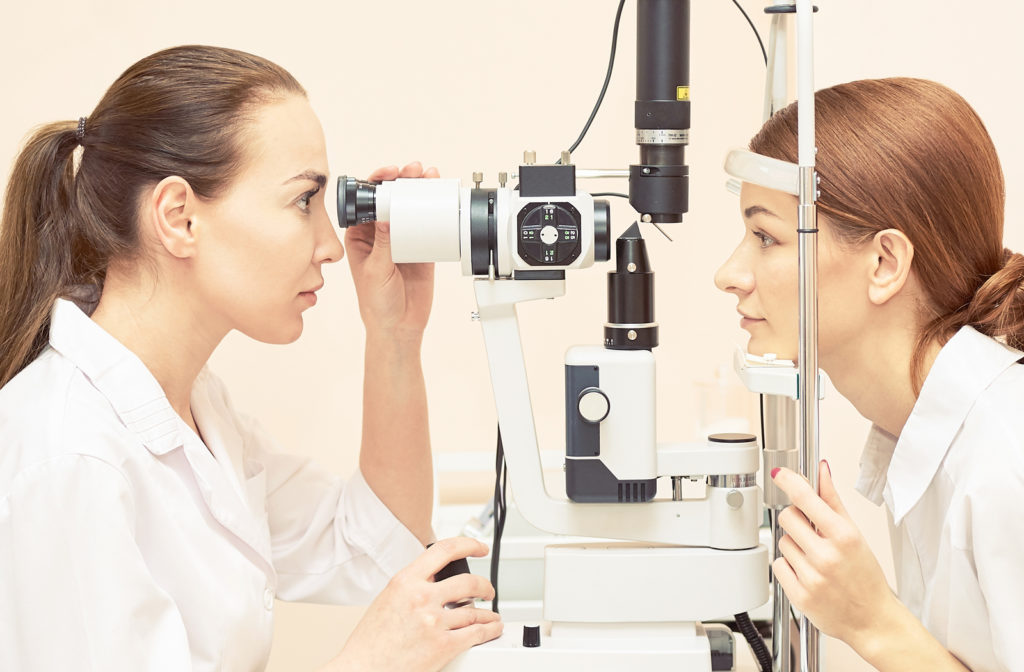The Importance of Regular Eye Tests: Insights From a Skilled Ophthalmologist
Regular eye exams serve as an important element of medical care that prolongs beyond plain vision correction. A knowledgeable eye medical professional can provide insights right into exactly how these analyses not only discover typical eye conditions but additionally disclose underlying health issues that might or else go unnoticed.
Benefits of Routine Eye Exams
Although many individuals might neglect the importance of routine eye examinations, these evaluations play a crucial function in maintaining total wellness and health. Routine eye evaluations offer not just to evaluate vision but additionally to discover early signs of systemic health problems, consisting of diabetic issues and high blood pressure. By determining these conditions at their beginning, people can receive prompt treatments, dramatically improving long-lasting outcomes.
Furthermore, eye examinations can assist in monitoring existing health issues, guaranteeing that any kind of changes in vision or eye health are promptly resolved (optometrist). The analyses enable for tailored suggestions relating to glasses, way of living changes, and safety actions against possible eye pressure or damage
Beyond physical health, the advantages of normal eye examinations extend to enhancing top quality of life. Inevitably, focusing on eye examinations cultivates an aggressive strategy to health and wellness management, encouraging individuals to take cost of their well-being.
Common Eye Conditions Detected
Normal eye examinations are critical in spotting a selection of typical eye problems that can dramatically influence vision and overall health and wellness. Among the most prevalent conditions determined throughout these examinations are refractive errors, consisting of myopia (nearsightedness), hyperopia (farsightedness), and astigmatism. These conditions commonly show up as obscured vision and can be conveniently remedied with prescription glasses or contact lenses.
One more typical issue is glaucoma, a group of eye conditions that damage the optic nerve, frequently linked to increased intraocular stress. Early discovery is crucial as it can avoid irreparable vision loss.
Age-related macular degeneration (AMD) is an additional considerable problem that influences main vision, particularly in people over 50. Finally, diabetic retinopathy, an issue of diabetic issues, can cause extreme vision problems otherwise monitored routinely. Via thorough eye examinations, these problems can be recognized early, permitting prompt monitoring and treatment to preserve vision and improve quality of life.
Value of Very Early Discovery
Very early detection of eye problems plays an important duty in preserving vision and stopping significant health problems. Numerous eye diseases, such as glaucoma, diabetic person retinopathy, and age-related macular degeneration, can progress calmly without visible signs in their early phases. By the time signs and symptoms show up, permanent damages might have taken place, leading to permanent vision loss.
Routine eye exams facilitate very early medical diagnosis, enabling timely treatment and treatment. For circumstances, dealing with elevated intraocular pressure can stop the beginning of glaucoma, while taking care of blood sugar level degrees can significantly minimize the danger of diabetic retinopathy. Additionally, problems like cataracts can be successfully managed with medical intervention when recognized early.

How Commonly Should You See?
Establishing the regularity of eye exams is essential for maintaining ideal eye health and wellness and vision. The general referral for adults is to have a comprehensive eye exam each to two years, depending upon private danger elements and age. For individuals aged 18 to 60, an examination every two years is commonly sufficient if no vision problems exist. However, those over 60 need to take into consideration annual tests, as the risk of age-related problems increases considerably.
People with details threat elements, such as a family background of eye condition, diabetes, or existing vision issues, may require more constant assessments. Children must have their first eye exam at six months old, complied with by added tests at age three and before getting in institution. Regular check-ups during youth are vital as vision can change swiftly during developmental years.
Ultimately, the frequency of visits ought to be customized to every individual's scenarios, consisting of lifestyle, job-related threats, and any pre-existing eye conditions. Consulting with an eye care specialist can offer individualized referrals, making sure that your eye health and wellness is consistently kept track of and preserved.
Tips for Your Eye Exam
Planning for your eye exam can enhance the performance of the check out and make certain an extensive evaluation of your eye health. To optimize your time with the eye physician, it is critical to collect appropriate details prior to your appointment. Begin by assembling a checklist of any type of drugs you are currently taking, consisting of over the counter medicines and supplements, as these can influence eye health.
In addition, document any kind of signs and symptoms you have actually experienced, such as obscured vision, pain, or headaches. This details will certainly help your ophthalmologist in detecting potential issues. If you use glasses or get in touch with lenses, bring them along, even if you do not wear them consistently. This will certainly aid the physician evaluate any changes in your vision.
It is likewise beneficial to have a household background of eye conditions available, as hereditary variables can contribute to your eye wellness. Finally, consider arranging your test for a time when you are much less rushed, allowing you to ask inquiries and discuss your worries completely. By preparing adequately, you visit homepage make certain that your eye test is efficient and that your optometrist has all the required information to give the most effective care possible.

Final Thought
Normal eye exams play an essential role in keeping both vision and overall health. They promote the very early discovery of different eye conditions and systemic concerns, enabling timely intervention. The recommendations for click resources regularity highlight the significance of proactive care. Applying simple primary tips can boost the evaluation experience. Eventually, prioritizing detailed eye assessments contributes significantly to the preservation of vision and the renovation of quality of life, highlighting the requirement of regular eye care in preventive medical care approaches.
Regular eye exams are crucial in discovering a variety of common eye conditions that can considerably impact vision and general wellness.Determining the regularity of eye exams is important for keeping optimum eye health and wellness and vision.Preparing for your eye examination can improve the effectiveness of the browse through and make sure a detailed assessment of your eye health (optometrist). By preparing effectively, you make sure that your eye examination is effective and that your eye medical professional has all the necessary details to offer the finest treatment possible
Eventually, focusing on comprehensive eye evaluations adds dramatically to the conservation of vision and the enhancement of high quality of life, underlining the need of regular eye care in preventive healthcare approaches.